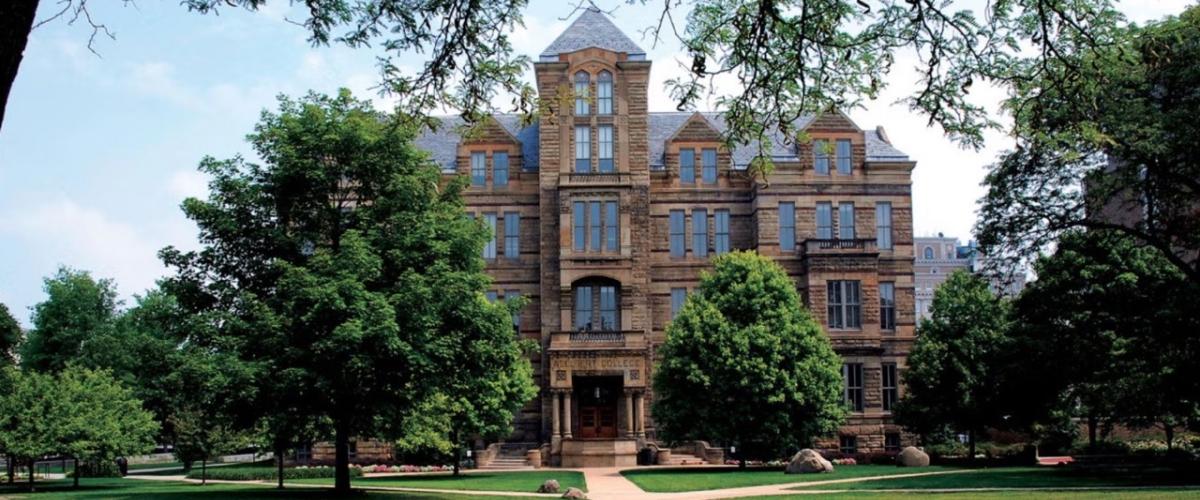Spartan Showcase: Ibrahim Quagraine
After discovering that his social venture, Cocoa Potash, was named one of 24 startups to advance to the 2025 Hult Prize Global Accelerator program earlier this year, Ibrahim Quagraine—a PhD biomedical engineering student at Case Western Reserve University—experienced a whirlwind of emotions, from surprise and excitement to nervousness.
Having witnessed the struggles of farmers firsthand and seeking to reduce agricultural waste in Ghana, Quagraine first partnered with Ithabeleng Makhetha, a Weatherhead School of Management alumna, and Prince Baffour Agyei, co-founder and chief operations officer, to launch Cocoa Potash. The venture transforms cocoa husks, coconut shells and other emissions-heavy agricultural byproducts into organic potash, fertilizer and renewable energy through a zero-waste, circular process.
“Our goal has always been simple, to transform waste into wealth and create sustainable value for our company and the farming communities,” Quagraine said. “To date, we have transformed over 80,000 tons of agricultural waste.”
To further develop their idea, the group sought out the Fowler Center’s ThinkImpact program, where they participated in cross-cultural workshops and entrepreneurial challenges before going on to win the Social Venture track of the 2023 Morgenthaler-Pavey Startup Competition—hosted by the Veale Institute for Entrepreneurship.
Through his involvement with Cocoa Potash, Quagraine also works with local cooperatives and non-governmental organizations to provide farmer training in modern agricultural practices, financial literacy and soap making—having impacted over 1,000 farmers and vulnerable individuals to this day.
This past August, the Cocoa Potash team traveled to Ashridge House in London as part of Hult Prize’s month-long intensive mentorship, where they participated in workshops and gained guidance from industry experts to pitch to investors—an experience that Quagraine carries with him today.
Read on to learn more about Quagraine’s experiences and the inspiration behind Cocoa Potash.
Answers have been edited for clarity and length.
Q. What inspired you to turn cocoa waste into opportunity?
My family worked in cocoa farming, so I understood these challenges on a personal level. In my first year of college, I co-founded Cocoa Potash with my roommate, Prince, who also came from a cocoa farming family. His drive was shaped by a personal tragedy when his family lost their farm to a wildfire that started while his father was burning cocoa pod waste.
Initially, we considered starting a local chocolate business, but thought that it would only generate more cocoa pod waste. So, we did some research and realized that cocoa pods are not actually waste but are rich in potash (or potassium bicarbonate), a high-demand commodity widely used in agriculture, biotechnology, pharmaceuticals, food processing and chemical manufacturing.
This realization became our turning point. Instead of viewing cocoa pods as a problem, we began to see them as hidden treasures and set out to develop a technology locally that could extract potash sustainably from cocoa pod waste, transforming it into a high-value product.
Q. What role did your experiences at CWRU have in shaping Cocoa Potash?
The ThinkImpact program and Fowler Center were instrumental in helping me clarify who our customers should be and how to position our product. I still remember Brandon Cornuke, one of the invited experts, telling me to highlight the ESG-compliant and organic, high-purity aspects of our product in our pitch. That advice shaped how we now present ourselves.
It was also my first real exposure to being surrounded by business students and entrepreneurship-minded peers, which was eye-opening. We had bi-weekly interactions with students in the United Arab Emirates (UAE), who shared how they were applying solutions to problems in their own regions. The most impactful moment was our spring break trip to the UAE, where we visited businesses commercializing sustainable solutions in diverse ways. That experience showed me what was possible for Cocoa Potash.
Weatherhead School of Management and the Veale Institute of
Entrepreneurship gave me critical support. I learned how to tell our story, communicate our technology to different audiences, rethink and frame our challenges, and strengthen our team. Faculty and staff guided me through preparing pitch decks, investor decks and market differentiation strategies. That combination of technical depth and entrepreneurial training has been essential.
Q. What’s the most surprising thing you’ve learned throughout your journey at CWRU?
I have learned that if you are working on a hard but important problem, people will step up to support you. The accelerator was rigorous and fast-paced, but we received immense guidance from the Hult Prize team, expert mentors, and the Veale Institute of Entrepreneurship. Even other startups in the program were generous with their support.
Q. Looking forward, where do you picture Cocoa Potash and what do you hope to accomplish?
Our vision is to make Cocoa Potash a leader in green chemistry in Africa. We want to become a backbone of the continent’s circular economy by transforming agricultural waste into sustainable products, empowering communities and setting a blueprint for agricultural innovation and waste management. Personally, I see myself leading that mission and continuing to build solutions that merge science, sustainability and social impact.
Q. What advice would you give to other CWRU students who want to create ventures that combine innovation with social good?
Find a problem you care deeply about. Entrepreneurship is hard. In our case, we went through countless research cycles, prototypes, funding challenges and even pushback from the very communities we were trying to help. The only thing that carried us through was our passion for the problem and the impacts of the solution. If you haven’t found your own problem yet, partner with someone who has. Collaboration can be just as powerful.
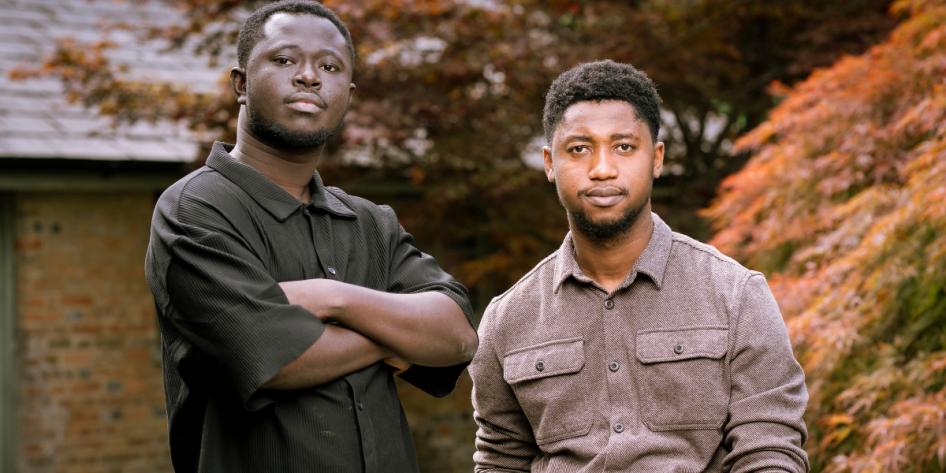
Founders of Cocoa Potash, Ibrahim Quagraine (pictured right) and Prince Baffour Agyei (pictured left).
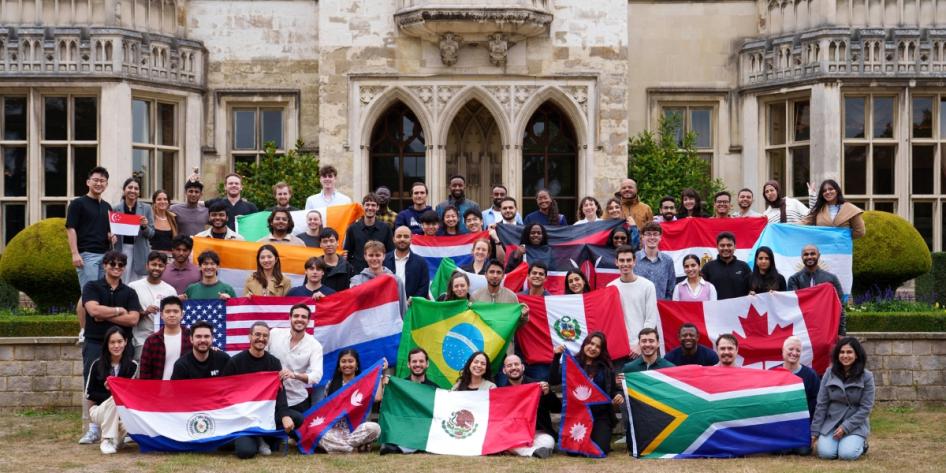
Semifinalists of 2025 Hult Prize Global Accelerator program with different country flags.
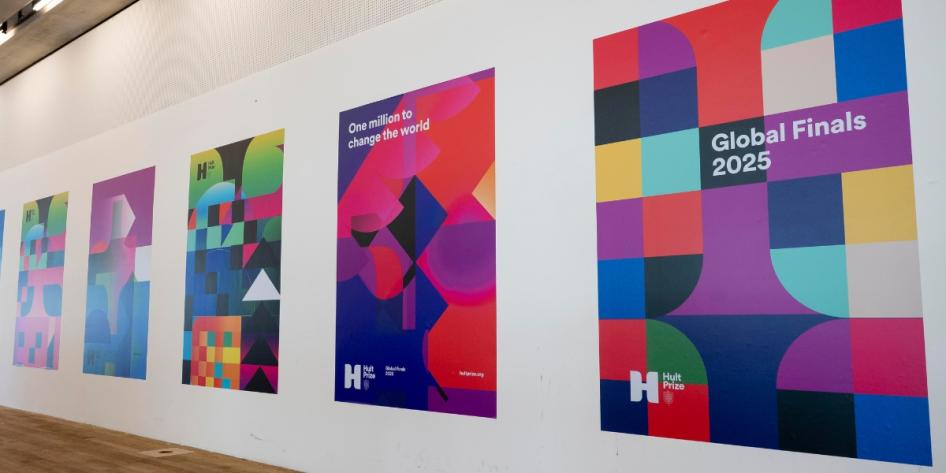
Welcome signs for 2025 Hult Prize Global Accelerator program.
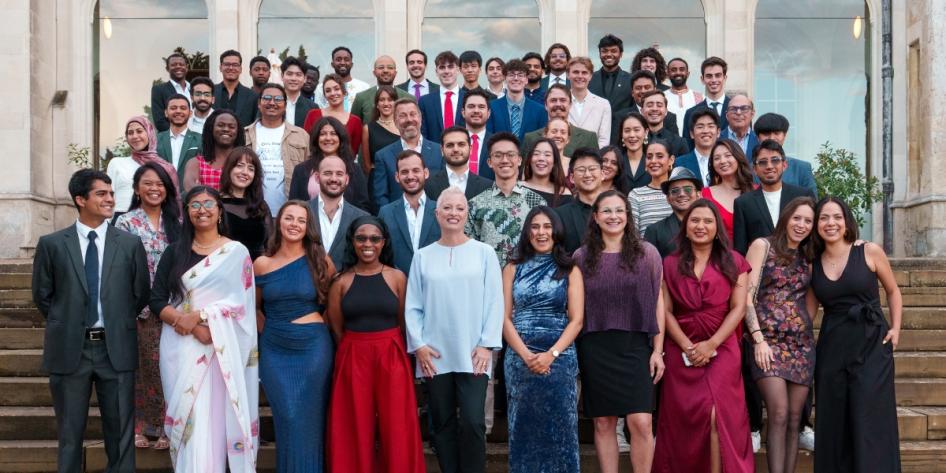
Semifinalists of 2025 Hult Prize Global Accelerator program.
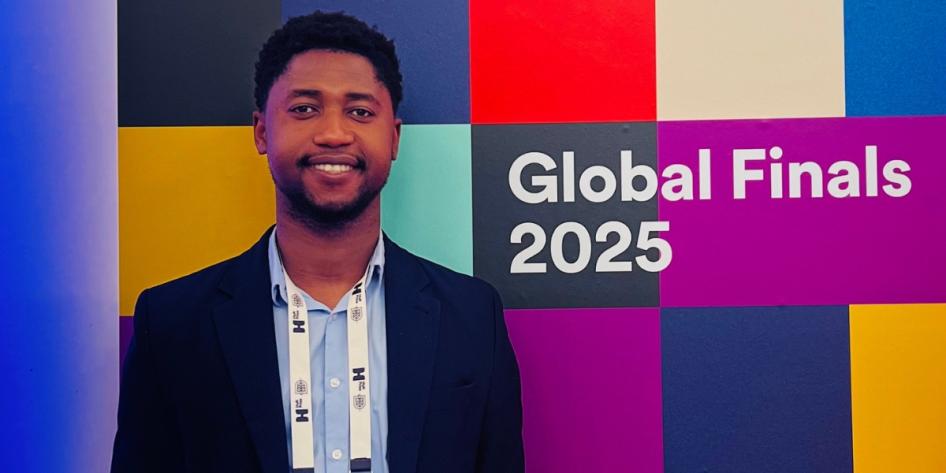
Ibrahim Quagraine
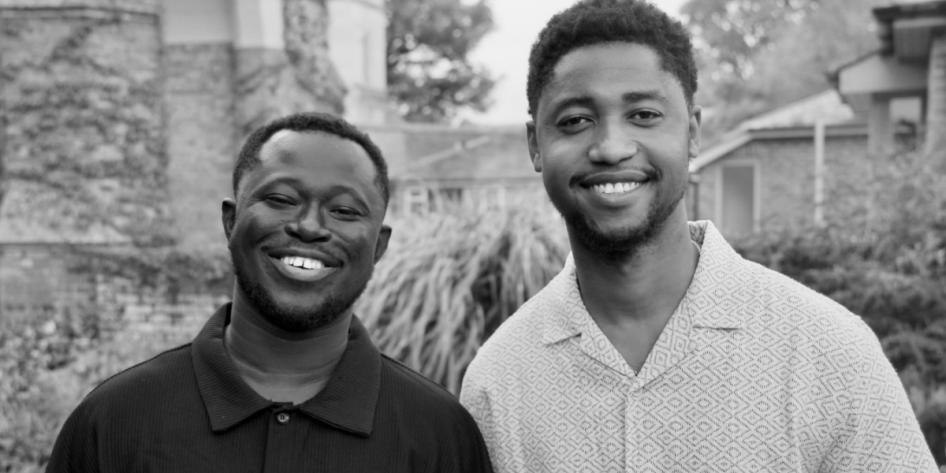
Cocoa Potash co-founders Ibrahim Quagraine (pictured right) and Prince Baffour Agyei (pictured left).


